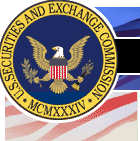 Representative Brad Sherman (D-CA) recently introduced, with one other Democrat and two Republicans, a bill to “improve the performance of the defense trade controls functions of the Department of State.” The proposed legislation is a clear response to mounting exporter frustration over increasing delays by the Directorate of Defense Trade Controls (“DDTC”) in processing licenses and other export-related requests.
Representative Brad Sherman (D-CA) recently introduced, with one other Democrat and two Republicans, a bill to “improve the performance of the defense trade controls functions of the Department of State.” The proposed legislation is a clear response to mounting exporter frustration over increasing delays by the Directorate of Defense Trade Controls (“DDTC”) in processing licenses and other export-related requests.
The centerpiece of the proposed legislation is the imposition of mandatory average processing times. For transactions not subject to Congressional notification requirements, for example, licenses to NATO members, Australia, Japan, New Zealand, and Israel must be processed, on average, within 20 days; 30 days for exports to major non-NATO allies; and 60 days to everyone else. Commodity jurisdiction requests would be required to be acted upon by DDCTwithin 60 days on average.
DDTC’s average processing times for Technical Assistance Agreements (“TAAs”) would need to be 120 days. It’s not clear why the proposed legislation would permit a significant delay in processing TAAs when license requests are put on such a short string. Further, the time limit doesn’t cover approving amendments to TAAs, even though the most significant delays currently being experienced are with respect to such amendments.
The proposed legislation would also significantly change the current provisions of the International Traffic in Arms Regulations (“ITAR”) relating to exports of spare parts. Under the proposed changes, a DDTC license would not be required for exports of spare and replacement parts to NATO members, Australia, New Zealand and Japan in specified circumstances, including that the parts and components are one-for-one replacements for parts and components for an item previously exported pursuant to a DDTC license. Under section 123.16(b)(2) of the ITAR, components or spare parts can be exported without a license in support of a defense article previously authorized for export as long as the value is under $500, the parts are going to the end user and not a distributor, and no more than 24 shipments are made per year to the end user. If this proposal is adopted, spare parts can be exported even if their value exceeds $500 and more than 24 shipments are made per year.

 Posted by
Posted by  Category:
Category: 

 The Securities and Exchange Commission
The Securities and Exchange Commission 
 The Office of Foreign Assets Control (“OFAC”) today
The Office of Foreign Assets Control (“OFAC”) today  A battle is being
A battle is being 

